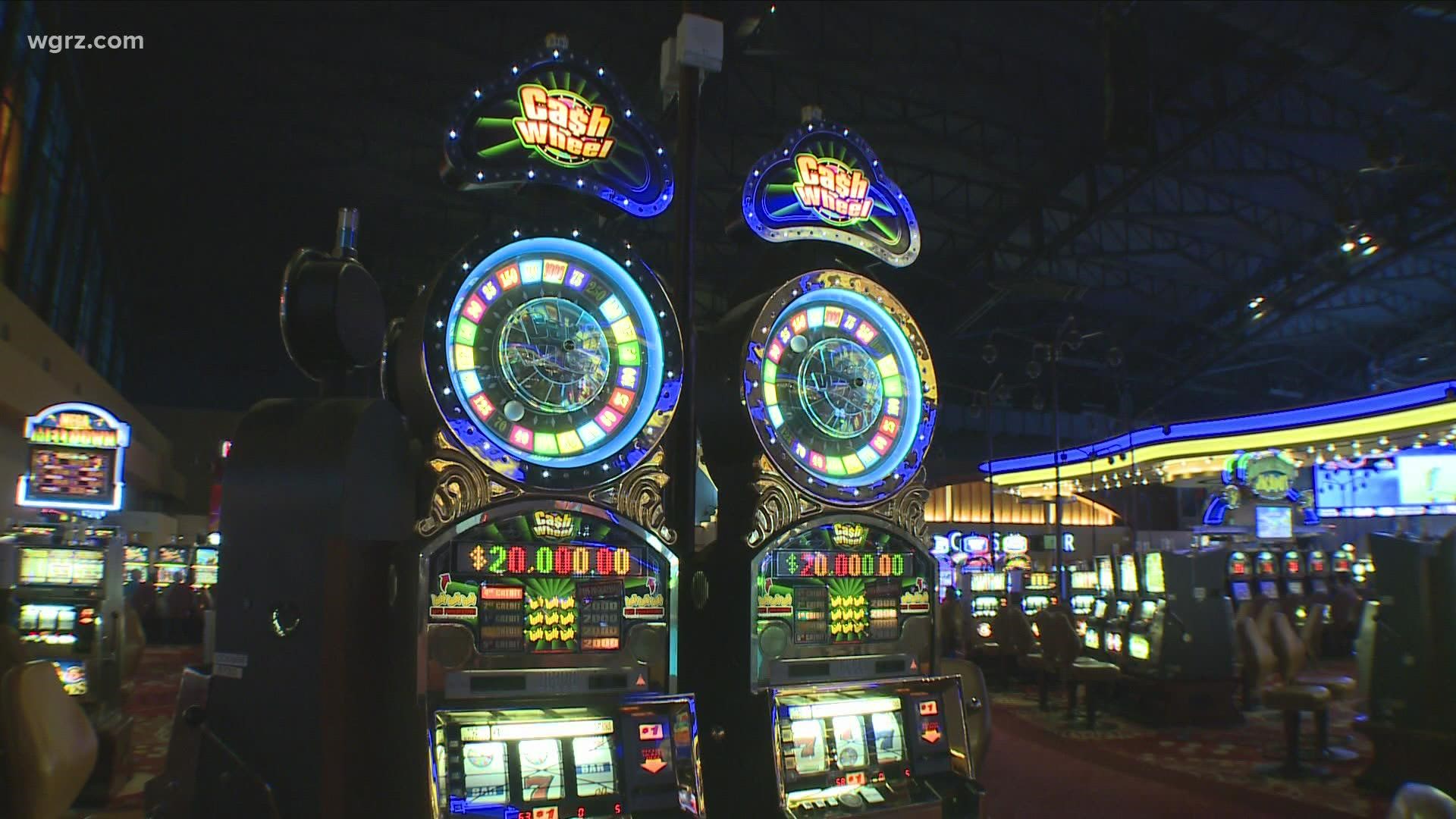BUFFALO, N.Y. — With a multi-year legal dispute between the Seneca Nation of Indians and New York State over casino revenue sharing now over, local communities impacted by the conflict are busy figuring out what they may be owed.
On Wednesday, both sides announced they’ve not only agreed to negotiate a new casino compact to replace the current one which expires in less than two years, but that the Seneca have also agreed to release nearly five years’ worth of casino revenue sharing payments that they had been withholding since the dispute began in 2017.
Show me the money
Under the compact which allowed them to operate casinos in Western New York, Seneca Gaming Corporation was to send 25% of slot revenues from each of their casinos to the State of New York.
The state would then send 25% of that amount, to the “host communities” where the casinos operate in Niagara Falls, Buffalo, and Salamanca in amounts proportionate to the size of the slot revenues at the casinos within their bounds.
According to sources, the amount the Seneca’s have withheld since the latest dispute began five years ago, has grown to $540 million and that is the amount that New York State will glean as a result of the dispute being resolved.
Ordinarily, that would mean the three host cities would be due to share in $135 million.
However, for two of the host communities, this will not mean an enormous and sudden windfall of cash because Niagara Falls and Salamanca received significant advances from the state on the money it eventually hoped to collect.
This was done to help keep those communities whole as the dispute dragged on.
According to Niagara Falls City Councilman Kenny Tompkins, the city had taken annual advancements of $10-12 million from the state for several years, so the amount the city will additionally get from the resolution of the dispute might not be more than a few million dollars.
Niagara Falls Mayor Robert Restaino noted that the city is required to share its portion of casino revenues from the state with several partner agencies, which will whittle into the amount it eventually receives even further.
Salamanca mayor Mayor Sandy Magiera confirmed that city took a total of approximately $15 million in advances against expected future payments, and so she also does not expect the additional amount to be more than a few million dollars, and possibly less because of the impact the pandemic had on revenues at the Seneca Allegany Casino through the near two-year course of the pandemic
Buffalo, however, is different story.
Brown puts expected payment at $40 million
While the city of Buffalo also took some advanced payments, according to Mayor Byron Brown the total was only about $7 million. Therefore, Brown expects the city to receive $40 million from the state once the Seneca send payment to Albany.
“Our plan for the use of this money will be reflected in the upcoming budget that we present to the Buffalo Common Council,” Brown told reporters.
Brown did not give many specifics beyond that.
“We will use the money to further improve the operation and efficiency of city government, quality of life improvements for residents across the city and to add to the city’s fund balance so we strengthen and stabilize the city’s finances,” he said.
New deal reached by new governor
It had been no secret that there was not much love lost between former New York Gov. Andrew Cuomo and the Seneca Nation of Indians, which often been at loggerheads on issues beyond casino revenues.
Brown gave full credit to current Gov. Kathy Hochul, a Western New Yorker, who took over in August after Cuomo resigned amid a sexual harassment scandal.
“I want to say a special thank you to the Governor and her staff which effectively negotiated to bring this issue to a close,” said Brown, whose remarks were also sprinkled with diplomacy, as he was careful not to bash the former Governor whose administration could not end the dispute. “Maybe it coincides with Governor Hochul. …
"I don’t know what the levers were or what the pressure points were in those negotiations, but obviously they came to an agreement and the Governor was able to successfully end the stalemate and as Mayor of Buffalo I’m very happy about that.”

